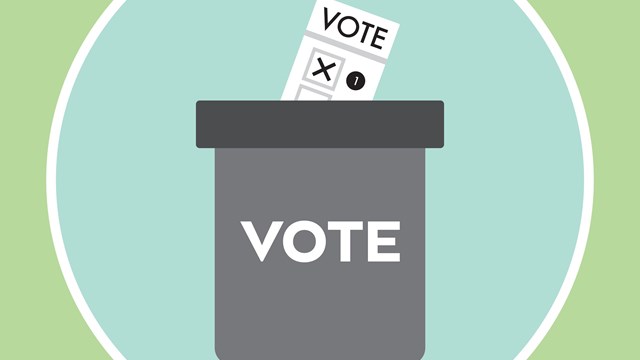Shared residential communities such as co-ops, condos, and HOAs are modern examples of classic Athenian democracy: citizens governing themselves through active participation in governance. The key to that governance is the regularity of elections to the community’s leadership—which in this case is the board of directors.
Boards
All shared communities have governing boards. The rules, regulations, and requirements the board must uphold and adhere to are set forth in the individual communities’ governing documents, and in state regulations. While the state’s level of involvement in those rules may differ slightly from state to state, individual community governing documents are generally very similar from community to community. The number of board members, their terms, term limits, and responsibilities may differ slightly, but are easily recognizable as basically consistent from community to community—and of the most universal tenets is that the board will stand for election from the entire community on a periodic (usually annual) basis.
The Rules
“Elections are supposed to be held annually,” says Dan Wollman, CEO of Gumley Haft, a management firm located in New York. “These elections are governed by the building’s bylaws, and must be held annually—or as spelled out in those bylaws. The only time we don’t hold an election is when we call for an annual meeting and there isn’t a quorum. In that event, the current board stays seated until the next annual meeting. The board can call a special meeting, but as a practical matter they usually don’t.” As for those situations where there isn’t a quorum, Wollman says that “it happens more in condos than co-ops, but it’s not uncommon. It happens more than one might think.”
In Massachusetts, says Matt Larson, director of community management for The Dartmouth Group, an Associa company located in New England, “the date [for board elections] is usually outlined in the community’s governing documents, while the baseline protocols are established by Massachusetts state law (specifically, Chapter 183A). No matter how an association’s homeowner group is organized, there are typically multiple variations of how the board of directors is elected. This function is usually completed by a vote of the homeowners. However, if a quorum of the owners is not met, appointments can be made by a majority of incumbent board members. Or in extreme circumstances, by a judge.”
Collecting & Counting Votes
Like the much larger elections held for public office, elections for co-op, condo, and HOA boards must be conducted and observed according to a set of explicit rules.
In New York, explains Mark Hakim, an attorney with Schwartz Sladkus Reich Greenberg Atlas in New York, “under Section 602 of the business corporation law (BCL), ‘[a] meeting of shareholders shall be held annually for the election of directors and the transaction of other business on a date fixed by or under the bylaws.’ For condominiums, we often look to the BCL for guidance and, in both instances, we look to the co-op’s or condominium’s bylaws for further guidance, including as to the time and place and permitted topics of the meeting. Most buildings have managing agents who are charged by their boards to attend to and manage the voting process, including the collection and counting of votes. Inspectors of elections are usually mandated by building’s bylaws and are customarily either the managing agents that run the building, or shareholders/unit owners of the building. They are there to oversee the opening of the ballot boxes and counting of the votes.”
Richard Brooks, a partner at Marcus Errico Emmer & Brooks, a law firm located in Boston, Massachusetts, points out that management’s involvement can sometimes become problematic in the election process. “There are times,” he explains, “when some residents may view the management company as biased, and some people don’t trust them. The trend going forward is toward electronic balloting. But if you want that component to your elections, you probably have to change your bylaws.
“Additionally,” Brooks says, “as the legal representative of the association, when we assist in running an election, as a matter of course we make sure every candidate gives a one-minute presentation about themselves to the community. It’s good policy for the members to know about the candidates and where they stand.”
Where there are concerns about favoritism on the part of a third party, like the community’s management or legal counsel, associations and corporations can choose to bring in election professionals to oversee the process from start to finish. Toni D’Egidio, a senior property manager with Maxwell-Kates in New York, stresses that “regardless of who collects the ballots, it is important that the process be transparent and comply with the building’s underlying documents to ensure a fair and accurate election.” Votes may be cast by mail, in-person, or electronically, or a combination of these methods, she explains. “Some boards hire third-party vendors to oversee all facets of the process, including sending out the initial election notice and certifying election results to minimize any appearance of impropriety or fraud. If mistakes occur during any part of the election process, the election company would address any issues that may arise.”
Self-Managed Communities
“Self-managed buildings and communities are as unique as they come,” says Larson. “With no third-party management to provide insight, guidance, and maintain accurate records, the board of directors, and ultimately the association, are potentially exposing themselves legally. The accusation of impropriety—not just related to an election, but with any aspect of community governance—can come from anywhere and from anyone. Most damaging in this scenario is that at the end of the day, homeowners are fighting fellow homeowners in the very community in which they all live. This goes against the core concept of being a part of a community, which is ultimately what all the homeowners sought in the first place. Management agencies have the experience, knowledge, and background in all aspects of governance to help the community navigate these types of unfortunate situations.”
Proxies
A proxy is a document that’s distributed to unit owners or shareholders that allows the person giving the proxy to assign his or her rights to vote to someone else. “There are different kinds of proxies,” explains Wollman. “There are directed proxies, which state clearly how the grantor of the proxy wants his/her shares voted. There are also proxies that grant the proxy holder the right to cast the vote as they see fit.
“Proxies are often used when a shareholder or a unit owner is unable to attend a meeting,” says Hakim. “It is a written authorization given by a unit owner or shareholder, empowering the person appointed in that proxy (e.g., the proxy holder), to attend the meeting and vote on the unit owner or shareholder’s behalf at that meeting. Proxies must be written, signed, and dated, and are used to help ensure a quorum is present. I have seen instances where residents are upset about the board including these proxies, but [proxies are] quite customary, and there is nothing that prohibits them.”
Proxy votes have always had their place in the election process. They are a key method of allowing owners unable to attend the annual meeting to have a say in picking who they think are the best candidates to serve the community. “Unfortunately,” says Larson, “in some instances, the proxy vote has provided an opportunity for election fraud, ballot harvesting, and owner non-representation. When this occurs, it can usually be traced back to certain homeowners who wish to serve their own needs, rather than act as a true fiduciary and serve the needs of the community as a whole.”
If a Board Fails to Act
“Residents should be familiar with election requirements outlined in their building’s governing documents,” says D’Edigio. If there’s a problem, “they can initiate a discussion by sending written notice to the managing agent or board to find out why elections are not being held in accordance with the building rules. If a resident suspects election tampering, they should provide any information they have to the managing agent and/or board, and request a response. Depending on the response, the resident may want to consult with an attorney.
“There should also be an established process in place to address a contested election,” adds D’Egidio. “Bylaws may provide guidance on how to address these matters. All parties involved should be permitted to present arguments, provide any evidence, and voice concerns. If the concern involves a close vote count between candidates, a recount may be conducted to confirm the accuracy of the count. The board may want to call on a third party to conduct a recount. In the event it becomes a legal challenge, all election materials and proxies should be secured.”
Elections are serious business. All involved—residents, boards, attorneys, and management—need to treat them that way.










Leave a Comment